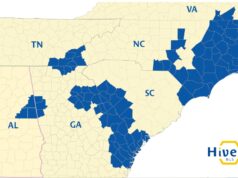House Proposals Dismantling Energy Efficiency Incentives Would Threaten Economic Growth, Increase Costs for U.S. Families, Undermine Energy Dominance
Washington, DC, – RealEstateRama – The Alliance to Save Energy (ASE) highlights the shortsightedness of House budget reconciliation proposals that would dismantle key energy efficiency incentives—moves that would jeopardize economic growth, increase costs for American families, and undermine energy dominance goals.
Instead of bolstering U.S. capacity through smart energy use, the House Ways and Means Committee targets tools that empower families and businesses to reduce waste and lower energy bills. The proposed elimination of key energy efficiency tax credits represents a step backward, prioritizing short-term maneuvers over long-term energy affordability and economic resilience.
“These proposals fundamentally misunderstand the strategic importance of energy efficiency,” said Paula Glover, President of ASE, “Efficiency isn’t a niche issue; it’s the bedrock of a stable and affordable energy system. By dismantling incentives for smarter homes and buildings, Congress would be imposing a hidden energy tax on American households and businesses for years to come.”
The House Ways and Means proposal seeks to eliminate the following energy efficiency incentives after December 31, 2025:
- The Energy Efficient Home Improvement Credit (25C): This would increase the cost of energy-saving upgrades for homeowners, disproportionately impacting the ability of low- and moderate-income households to take advantage of energy-bill savings over time.
- The New Energy Efficient Home Credit (45L): This would discourage the construction of energy-efficient new homes. Efficient new construction is crucial for long-term energy savings, a more resilient housing stock, and U.S. competitiveness in advanced building technologies.
The Commercial Buildings Energy Efficiency Tax Deduction (179D) remains untouched. However, repeal of other clean energy and efficiency incentives would reduce the market for energy efficiency upgrades in commercial buildings, undermining its effectiveness.
“Energy efficiency is a powerful economic engine, creating jobs in manufacturing, construction, and technology,” said Sapna Gheewala Dowla, Associate Vice President of Policy and Research at ASE. “Gutting these incentives will not only harm consumers but weaken our economy.”
Moreover, the efficiency credits at risk, unlike many credits enacted by the embattled Inflation Reduction Act, are not new, with their effectiveness dating back to 2005.
ASE calls on Congress to reject these proposals and instead strengthen investments in energy efficiency, recognizing its crucial role in lowering energy costs, creating jobs, and enhancing energy security.
About the Alliance to Save Energy
Through research, education, and outreach, the Alliance to Save Energy is the leading advocate for federal energy efficiency policy. ASE champions the power of putting energy efficiency first for a broad coalition of members including utility providers, manufacturers, and retailers.
Contact: Jessica Nesterak, , (202) 557-6549

















